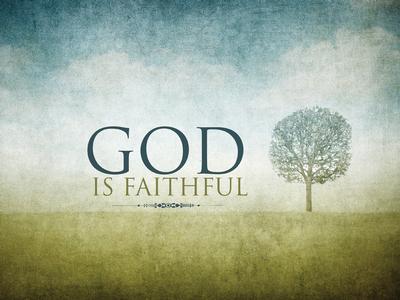If the are those who can speak to where the Church is, there must also be, from the same voices, those to speak where the Church is not. If there are those who confess what it is that the Church believes, there must also be those who confess what the Church does not believe. In other words, every affirmation of what is true is, by nature, a condemnation of what is not true. I fear that we have forgotten this.
We live in a time in which every idea is affirmed except the idea that truth is true always and for everyone. The looks for a Church which affirms every novelty and finds no contradiction in opposites as long as people are happy. Yet the Church cannot speak affirmatively of the revelation of God and His mighty acts of deliverance in Christ without at the very same time affirming the inability of man to stumble upon this saving knowledge on his own or accomplishing for himself what only Christ can do. Surely it is true that at times the Church appears to be leaning toward one side more than the other (condemnation of wrong more than affirmation of truth) but it is a false distinction that the Church must choose between them.
We confess in doctrine what we believe, confess, and teach. At the same time we confess what is falsehood, error, and evil. If we fail to affirm what we do believe, we cease to be the Church and if we fail to condemn what we do not believe, we also cease to be the Church. We cannot be neutral before error or lazy before truth.
This is certainly true when it comes to history. What do you call it when a man has no memory? Amnesia. Amnesia is not a neutral condition but something wrong. We treat the man who has no memory and, if the condition warrants, we provide secure care for those whose memories have failed. But when it comes to the Church, there are those outside and even inside who would suggest that the history and doctrinal integrity we have inherited is excess baggage to be discarded and not something to be preserved. We have seen this in a great deal of Christianity in which yesterday's doctrine and truth has been tossed aside when it comes to the historicity of Scripture, the integrity of the Scriptures, the one unchanging story of the Scriptures, and the moral life held up by the same Scriptures. Like the amnesia patient, such communities have no identity and are on the verge of ceasing to be the Church in any way shape or form.
There may have been a time when the Church was tied to much to the past and the present was viewed with suspicion or even fear. We live now at a time in which the present is viewed as the only perspective that counts, when the past is almost rejected out of hand as either irrelevant or immaterial to the situation right now. There might have been a time when it seemed that the Church was more conscious of God's no than His yes but today things have been reversed and the Church is reluctant to say no to anything out of fear that some may disagree or reject the authority of the Church. But the reality is that our authority does not come from people or their acceptance but from God. In the same way our strength does not come from people's agreement or appreciation of the Church but from the resources of God bestowed upon us in His Word and Sacraments. In fact, it is the opposite. We are made weak by our pandering to the moment, by our constant affirmation of every whim, feeling, and desire, and by our failure to mark the boundaries of faith and faithfulness.
In nearly every debate of our modern age, voices within the Church as well as those outside constantly question what does it matter if we ignore Scripture in speaking of creation or of the reality of sin and its definition or of the contribution we bring to our own redemption or of the boundaries of faith and faithfulness that define who communes and who does not or of gender that is fluid and flexible and unrelated to the shape of the body. What does it matter? What does matter, in this idea, is people and how they feel and those feelings that trump truth, fact, and dogma every time. Yet this is the surest path to death for the Church created not by the will or desire or decision of man but the solemn action of God apart from us to become the Savior of His people. It matters little if the Church is but a fellowship of like minded people but if the Church is the body of Christ, then everything is at stake.
The world may not realize it but the only Church worth having is the one rooted in history and built up in Christ with a voice strong enough to say God's no as well as God's yes. God's Church is this Church and those who lead her better learn this truth or there will be nothing left to lead.

1 comment:
We are made weak by pandering to the world, but we have chosen weakness above being hated. Not a good trade.
Post a Comment